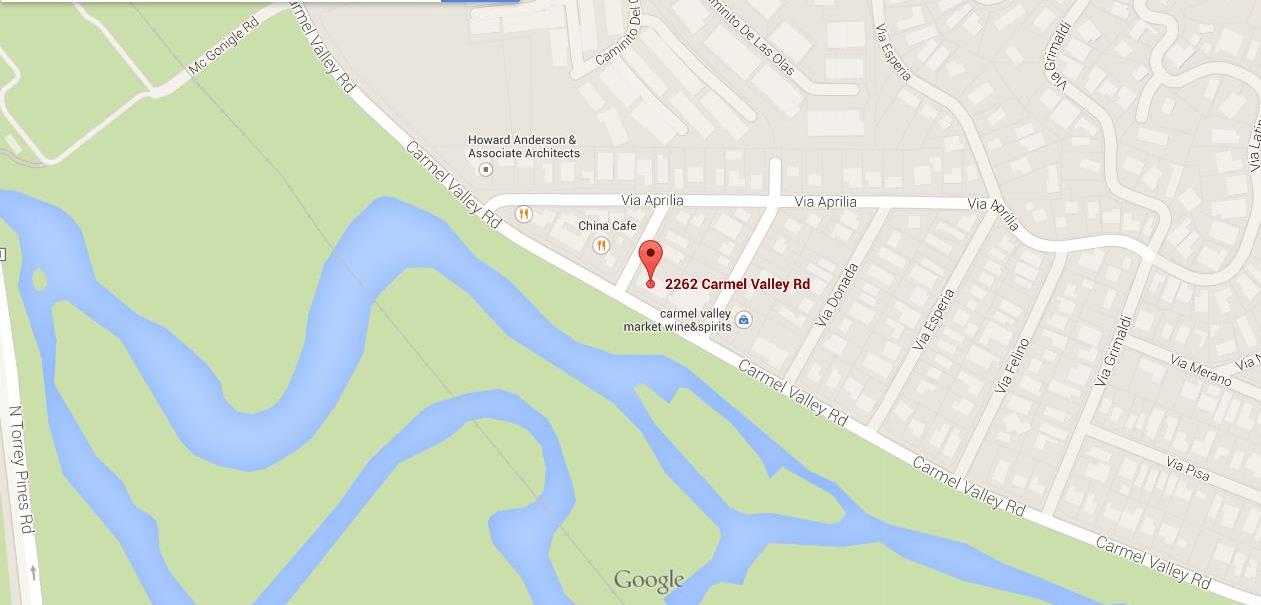



THERAPY
“I strongly believe that systems collaboration is a very important part of treatment. That means that I collaborate with teachers, tutors, family members, medical doctors, psychiatrists, and anyone else integral to the person’s life. While a person may seek help for a specific issue, that issue very often impacts multiple areas of the person’s life and connecting those pieces is very important.”
·Generalized Anxiety (maybe the person cannot identify a cause) and Specific Anxiety (including separation anxiety and fears)
·Depression
·Behavioral Challenges
·Emotional Regulation, Frustration Tolerance
·Social Skills
·Developmental Disorders, Learning Disorders, ADHD, Asperger’s Disorder
·School-related Stressors
·Changes and Transitions (moving, starting a new school, parent divorce, losing a job, grieving, family stressors, etc.)
·Family Conflict
Pre-School and Young Children
“When working with young children I include the parents in much of the therapy. While it is different for every family, typically, I get to know the child for one to two sessions. At that point I am able to assess the child’s needs, come up with some ideas about interventions, and begin to teach skills. Very often I find it extremely helpful to also do a classroom observation. This enables me to see the child in a natural setting interacting with adults and peers. Once I have an idea of what is going on I meet with the parents and discuss goals and recommended interventions. From that point on, the parent joins us for at least part of most sessions so they can learn the skills taught and support their child in using them at home.”
Older Children
“The therapeutic process is very similar for older children as it for younger children to start. However, as therapy progresses the child takes a more active role in communicating with parents. For example, with my guidance I have the child teach the parent the skills we practice in session so the parent can help the child use them at home. Issues such as anxiety and depression may become more prominent for older children. The issues also expand to include things such as, video games, growing independence, household responsibilities, and more complex peer relationships. Older children are also more vocal about their views of the relationships in their lives and the things they are dealing with on a daily basis. This enables them to be active participants in setting goals and identifying things they want help with.”
Adolescents
“Therapy with teens is often different than with younger kids. First, the issues of privacy between what they talk about and what is shared with parents becomes a central factor for many. With the increased complexity of adolescence, depression, anxiety, and acting out are common issues addressed in therapy. In addition, peer relationships become very complex. With the insurgence of social media the concept of “friend” has taken on a whole new meaning. Teens are also much more independent as they begin to drive and arrange social activities on their own. In addition, school performance and discussions about their future become hot button topics in many households. Helping them to be prepared to launch into college life and/or adulthood is a paramount issue for many families. For teens who engage in high risk behavior (drinking, drug use, aggression, self-harm, sexual acting out), this often becomes a primary topic.”
Young Adults
“Very often the launch into college or independent living is a stressful one for many young adults and their parents. Parents aren’t sure what their roles are or how much control they still have. On the other hand, the young adult often feels very overwhelmed, but resents the interference of their parents. This is a very difficult balance to keep. The focus on my work is often helping families bridge that gap. Because I work with so many adolescents, they commonly stay in contact when they leave home. I have very much enjoyed continued support of the young men and women I work with via Skype. I have been able to maintain support even when they move away. This has been particularly effective when they leave for a short time, such as a gap year, or if there are intermittent crises that arise that they want help with, but don’t want to find and try to build trust with a therapist in their area.”
Adults
“Many of the adults I work with are feeling very overwhelmed, anxious, depressed, angry, or frustrated. Very often an adult seeks therapy with me because they report feeling “unhappy”, but don’t know why. Therapy very often focuses on life transitions, such as imposed or desired changes in relationships, jobs, family life, and/or experiencing a significant loss.”
ASSESSMENTS
Cognitive and Educational Assessments
The goal for completing a cognitive and educational evaluation is to identify a student’s learning profile. Among the many areas that are evaluated are auditory processing, visual-spatial processing, long and short-term memory capacity, cognitive and academic fluency, sustained attention, executive functioning, and academic levels (reading, writing, math, fluency, etc.). Significant learning challenges, such as learning disorders and ADHD will be identified. However, as important as identifying any learning challenge is identifying a student’s strengths because that is what guides the recommendations.
As part of the assessment a classroom observation, record review, and extensive teacher interviews are conducted as appropriate.
Emotional Assessments
Emotional assessments help identify how a person is functioning emotionally. They evaluate things such as a person’s level of anxiety, depression, and self-esteem. These assessments also include how the person views the world, copes with stress, views him or herself, and interacts with others.
School Consultations
School consultations typically take one of three forms.
· When assessments are completed with children and teens, very often it is very helpful to share the information and coordinate recommendations with the school. This may include participating in IEP meetings and advocating for recommendations made in the evaluation or collaborating with teachers and resource specialists.
· School consultations can also be very valuable ways to help kids with social and emotional challenges cope with the daily stressors of the school environment. This can include things such as social skills, sensory integration issues, school anxiety, depression, school avoidance, and behavioral challenges.
· San Diego has many different options for school placements. Sometimes it is difficult to navigate the differences between each school. Because I regularly do school observations and participate in school meetings, I can be a resource for discussing the unique differences in many of the academic environments from an outside perspective.
“I strongly believe that systems collaboration is a very important part of treatment. That means that I collaborate with teachers, tutors, family members, medical doctors, psychiatrists, and anyone else integral to the person’s life. While a person may seek help for a specific issue, that issue very often impacts multiple areas of the person’s life and connecting those pieces is very important.”
·Generalized Anxiety (maybe the person cannot identify a cause) and Specific Anxiety (including separation anxiety and fears)
·Depression
·Behavioral Challenges
·Emotional Regulation, Frustration Tolerance
·Social Skills
·Developmental Disorders, Learning Disorders, ADHD, Asperger’s Disorder
·School-related Stressors
·Changes and Transitions (moving, starting a new school, parent divorce, losing a job, grieving, family stressors, etc.)
·Family Conflict
Pre-School and Young Children
“When working with young children I include the parents in much of the therapy. While it is different for every family, typically, I get to know the child for one to two sessions. At that point I am able to assess the child’s needs, come up with some ideas about interventions, and begin to teach skills. Very often I find it extremely helpful to also do a classroom observation. This enables me to see the child in a natural setting interacting with adults and peers. Once I have an idea of what is going on I meet with the parents and discuss goals and recommended interventions. From that point on, the parent joins us for at least part of most sessions so they can learn the skills taught and support their child in using them at home.”
Older Children
“The therapeutic process is very similar for older children as it for younger children to start. However, as therapy progresses the child takes a more active role in communicating with parents. For example, with my guidance I have the child teach the parent the skills we practice in session so the parent can help the child use them at home. Issues such as anxiety and depression may become more prominent for older children. The issues also expand to include things such as, video games, growing independence, household responsibilities, and more complex peer relationships. Older children are also more vocal about their views of the relationships in their lives and the things they are dealing with on a daily basis. This enables them to be active participants in setting goals and identifying things they want help with.”
Adolescents
“Therapy with teens is often different than with younger kids. First, the issues of privacy between what they talk about and what is shared with parents becomes a central factor for many. With the increased complexity of adolescence, depression, anxiety, and acting out are common issues addressed in therapy. In addition, peer relationships become very complex. With the insurgence of social media the concept of “friend” has taken on a whole new meaning. Teens are also much more independent as they begin to drive and arrange social activities on their own. In addition, school performance and discussions about their future become hot button topics in many households. Helping them to be prepared to launch into college life and/or adulthood is a paramount issue for many families. For teens who engage in high risk behavior (drinking, drug use, aggression, self-harm, sexual acting out), this often becomes a primary topic.”
Young Adults
“Very often the launch into college or independent living is a stressful one for many young adults and their parents. Parents aren’t sure what their roles are or how much control they still have. On the other hand, the young adult often feels very overwhelmed, but resents the interference of their parents. This is a very difficult balance to keep. The focus on my work is often helping families bridge that gap. Because I work with so many adolescents, they commonly stay in contact when they leave home. I have very much enjoyed continued support of the young men and women I work with via Skype. I have been able to maintain support even when they move away. This has been particularly effective when they leave for a short time, such as a gap year, or if there are intermittent crises that arise that they want help with, but don’t want to find and try to build trust with a therapist in their area.”
Adults
“Many of the adults I work with are feeling very overwhelmed, anxious, depressed, angry, or frustrated. Very often an adult seeks therapy with me because they report feeling “unhappy”, but don’t know why. Therapy very often focuses on life transitions, such as imposed or desired changes in relationships, jobs, family life, and/or experiencing a significant loss.”
ASSESSMENTS
Cognitive and Educational Assessments
The goal for completing a cognitive and educational evaluation is to identify a student’s learning profile. Among the many areas that are evaluated are auditory processing, visual-spatial processing, long and short-term memory capacity, cognitive and academic fluency, sustained attention, executive functioning, and academic levels (reading, writing, math, fluency, etc.). Significant learning challenges, such as learning disorders and ADHD will be identified. However, as important as identifying any learning challenge is identifying a student’s strengths because that is what guides the recommendations.
As part of the assessment a classroom observation, record review, and extensive teacher interviews are conducted as appropriate.
Emotional Assessments
Emotional assessments help identify how a person is functioning emotionally. They evaluate things such as a person’s level of anxiety, depression, and self-esteem. These assessments also include how the person views the world, copes with stress, views him or herself, and interacts with others.
School Consultations
School consultations typically take one of three forms.
· When assessments are completed with children and teens, very often it is very helpful to share the information and coordinate recommendations with the school. This may include participating in IEP meetings and advocating for recommendations made in the evaluation or collaborating with teachers and resource specialists.
· School consultations can also be very valuable ways to help kids with social and emotional challenges cope with the daily stressors of the school environment. This can include things such as social skills, sensory integration issues, school anxiety, depression, school avoidance, and behavioral challenges.
· San Diego has many different options for school placements. Sometimes it is difficult to navigate the differences between each school. Because I regularly do school observations and participate in school meetings, I can be a resource for discussing the unique differences in many of the academic environments from an outside perspective.

Teaching Kids to Think addresses the unique challenges of raising children and teens in the Instant Gratification Generation. There are countless challenges parents undergo while raising their children in a world filled with smartphones, immense academic pressure, and social media. It’s understandable that parents want to help their children succeed in any way they can, but toeing the line between simply helping and full-on rescuing can be difficult to navigate. This generation of children and teens has grown up with very little need to wait for anything. Not only do they expect instant solutions to their challenges, but they are also increasingly dependent on adults. Parents are doing more for their children than ever before and technology has advanced in such a way the conveniences are no longer the exception, but the rule. Five parent traps are identified in Teaching Kids to Think that cause adults to unknowingly increase their children's need for instant gratification, and offer practical tips to teach children to be confident, independent, thoughtful, and ready to enter the adult world.
CLICK HERE TO VISIT BOOK SITE
CLICK HERE TO VISIT BOOK SITE
Office Location
2262 Carmel Valley Rd., Suite D
Del Mar, CA 92014
(858) 382-1137
2262 Carmel Valley Rd., Suite D
Del Mar, CA 92014
(858) 382-1137
Dr Sweetland
About
Appearances
Services
About
Appearances
Services
Media
Books
Contact
Books
Contact
Click on map for directions
























